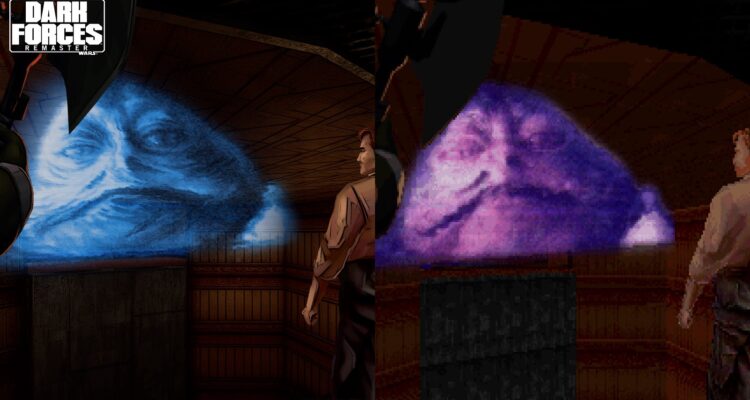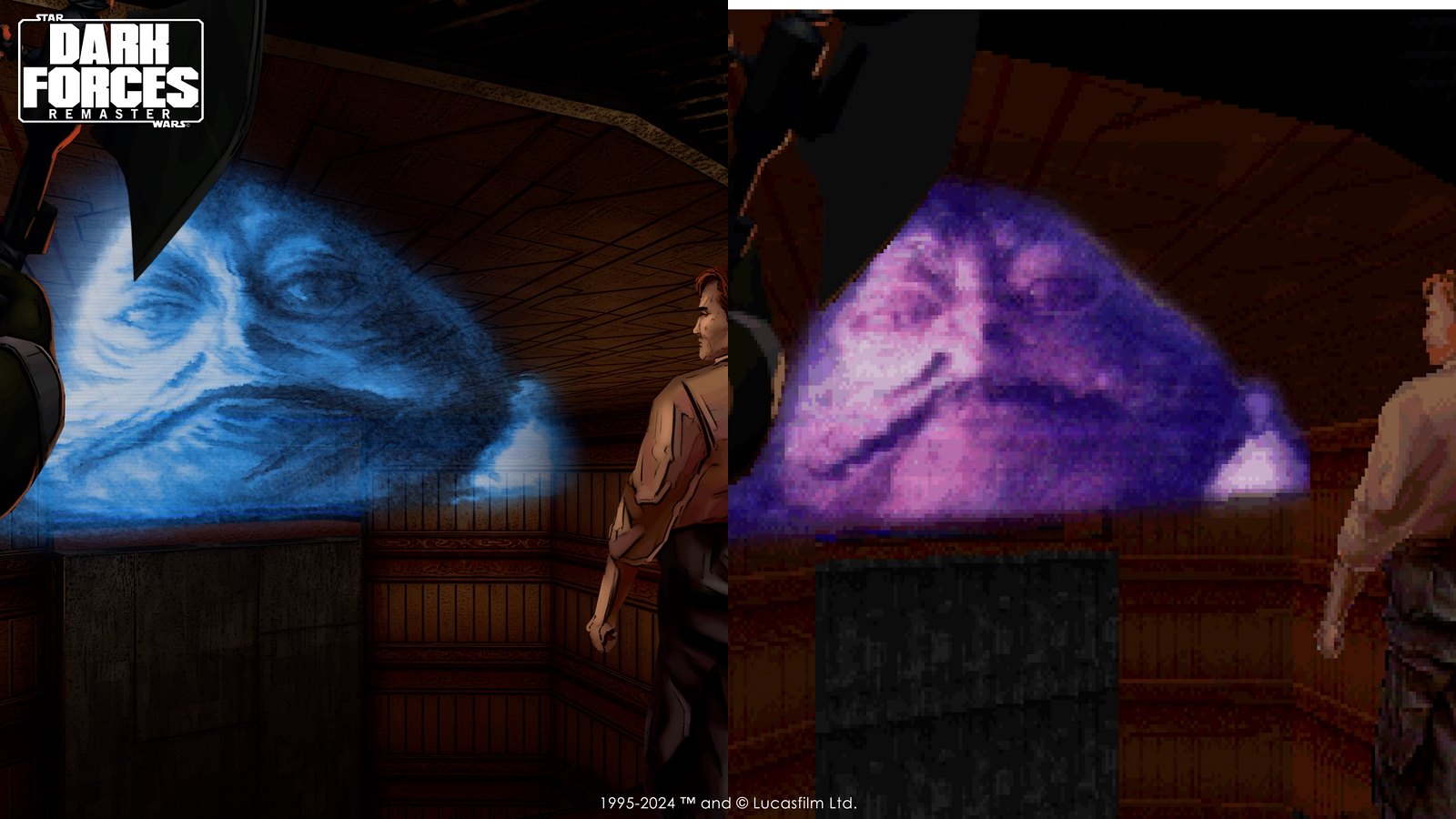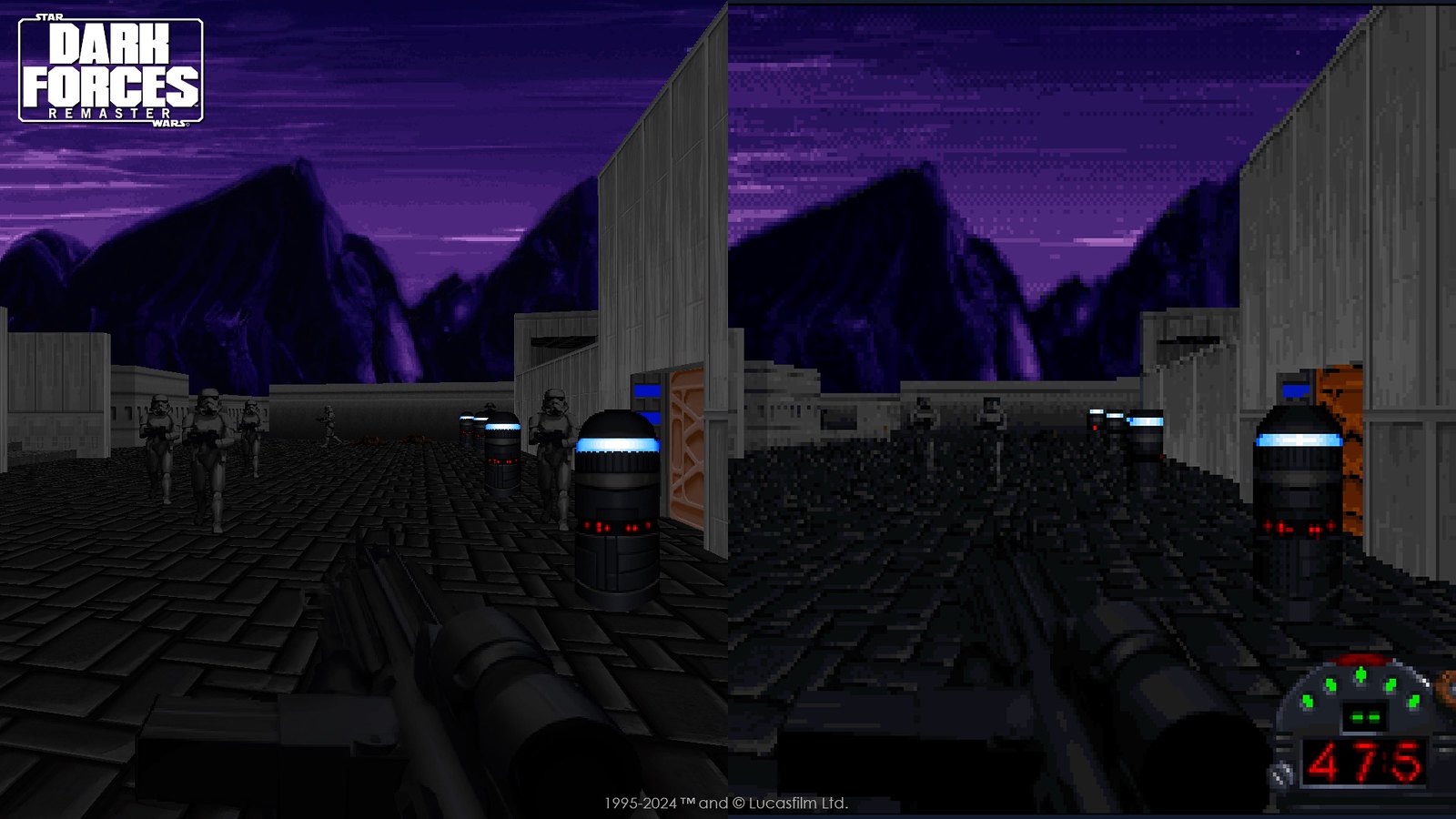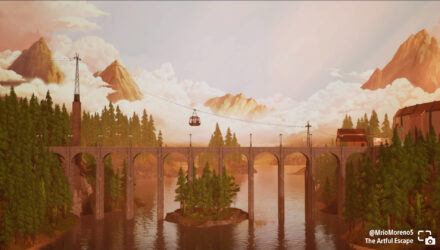Last year, it was revealed that the masters of remasters at Nightdive Studios have taken on the task of bringing the beloved 90s classic Star Wars: Dark Forces to modern audiences. The remaster is set to release February 28 on PS5 and PS4, nearly 30 years after the release of the original game from LucasArts in 1995.
Similar to Nightdive’s previous endeavors with titles like Quake II and Turok 3: Shadow of Oblivion Remastered, Star Wars: Dark Forces Remaster honors the strong foundation of the original while updating it for modern consoles through the studio’s proprietary KEX engine, allowing the game to run at up to 4K resolution at 120FPS on PlayStation 5.
With this, fans of the original as well as a whole new generation of gamers, will be able to experience Star Wars: Dark Forces and appreciate what made it such an essential title within LucasArts’ (now Lucasfilm Games) impressive catalog. Further honoring the work that went into its initial development, it’s been revealed that Star Wars: Dark Forces Remaster will feature a special Vault jam-packed with never-before-seen content from the making of the 1995 original!
With improved spritework and remastered cutscenes, those looking to dig deeper into a truly unique story within the Star Wars galaxy will be able to enjoy a visually pleasing narrative experience as they join protagonist Kyle Katarn, a defector turned mercenary for hire working for the Rebel Alliance, in foiling the Galactic Empire and its secret Dark Troopers Project.
As much as we’d love to continue gushing over why this has been such an exciting project for Nightdive and must-play title for fans and newcomers alike, let’s dive deeper into the fascinating history and behind-the-scenes work of breathing new life into Star Wars: Dark Forces with Nightdive’s Project Lead and Producer, Max Waine.
Exploring The Vault
PlayStation Blog: What was the most exciting challenge you faced while working on Star Wars: Dark Forces Remaster?
Max Waine: For me, it was bringing something new and worthwhile to existing fans of the game. Our way of tackling that was by bringing in The Vault. It was imperative that I find and present interesting snapshots of the development of the game. From there, it was a lot of coding to make it all work, conversion of various assets to be able to load in the remaster, and a great deal of text to write for the titles and descriptions; balancing being informative of what I did know from the development files without drifting into speculation proved exceptionally difficult.
When diving into the Remaster, what details about the original LucasArts spritework stood out to you from a historical development perspective?
From a development perspective, Dark Forces seemed to have a relatively typical way of approaching sprites for the time and genre. A combination of touched-up scanned models, hand-drawn sprites, and rendered 3D models (from 3D Studio) are ordinary fare. The software they used for spritework, DeluxePaint Animation, was also seemingly pretty standard. One interesting detail is that many of the human sprites seemed to be mostly hand-drawn but would use incredibly basic models to provide things like poses and such.
Design and assembly
What about the game’s cutscenes? Can you share insight into the work Nightdive has done to remaster these?
I integrated the new cutscenes into the game itself, with the help of Daniel Albano to allow for supporting different languages within the cutscenes. Outside of setting up the video player, I created a text-based format that could change the music in-sync with the video the same way the original did.
I’ll be paraphrasing Brendan McKinney here, who was our 3D maestro on the cutscenes. Beside Brendan, development was done with paintings of the new characters by Ben Chandler, ship models by Daniel Andersson, and guidance from Lucasfilm Games’ David Yee.
Due to the original cutscenes blending of different types of assets, the process of updating the cutscenes proved difficult. Initially the approach was to try to recreate the same cutscenes at a higher resolution, but this resulted in greater scrutiny being drawn to the differences in the disparate types of assets that could be provided in a cutscene.
The approach that was ultimately taken was to embrace the mixed medium spirit of the originals while still narrowing the divide so that, even at higher resolution, everything fit comfortably together.
This is where Ben Chandler came in, doing painted versions of characters like Crix Madine and Jabba, who were based on or fully taken from stills of the films respectively for their depiction in the original. Brendan recreated the environments in 3D, painting over them afterward to bring the composition nearer to Ben’s character work. The space sequences were approached with the intent to keep things simple, matching the feel of the original work.
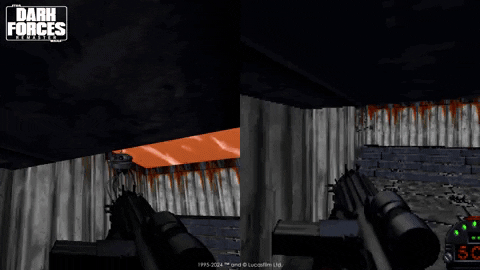
Is there a weapon design unique to Dark Forces that you specifically like? What makes it interesting from a development POV?
It’s gotta be Kyle’s trusty sidearm, the Bryar pistol. The weapon just really looks the part. A lot of the weapons were rendered out from 3D models, and for some it can chafe against the technical limitations of the time, but the Bryar pistol just looks absolutely perfect as-is.
Adding to this, what can you share about the Phase 02 Dark Trooper character model from a developer standpoint?
The Phase 02 Dark Trooper as a character seemed to go through a fair bit of iteration from initial conception to what ended up present in the final game. Renders of the character model definitely appear to be what is used in both the original cutscenes and as a basis for the spritework. I can’t be exactly certain how they animated pre-rendered cutscenes with the Dark Troopers though, as we don’t have a significant amount of the 3D-related assets.
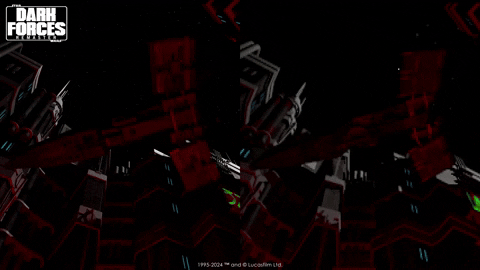
Honoring the original Dark Forces
What’s the most impressive feat accomplished with this game based on the time it was created?
Dark Forces is greater than the sum of its parts, and while I will point out key impressive aspects of the game, I want to emphasize just how strong it is as a cohesive whole. There are two things that jump out at me the most for the time period: support for 3D environments that allow for room-over-room, which was something that the Doom engine was not capable of; seamless integration of fully 3D objects within the environment (like Kyle’s ship, X-Wings, Mouse Droids, etc.).
Lastly, what do you think Dark Forces did to move the budding FPS genre forward during its time?
At a time where FPSs were largely abstract in locales, Dark Forces pushed the tech forward enough to be able to successfully realize familiar and more realistic environments. In addition to that it was able to tell a cohesive story, complete with fully voice-acted cutscenes. The sum total of this is a game that really pushed forward just how immersive FPSs could be.
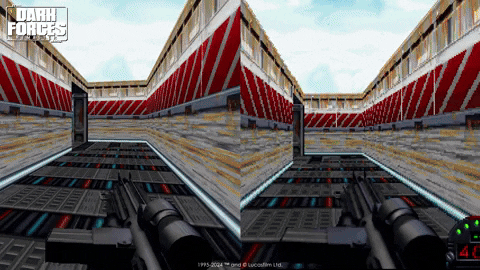
We want to thank Nightdive’s Max Waine for the blast from the past experience we’ve had learning about the work being put into Star War: Dark Forces Remaster, including how it features The Vault, which packs in a wealth of behind-the-scenes visual content from the development of the 1995 original!
Additional features fans can look forward to with Star Wars: Dark Forces Remaster are visual improvements, including advanced 3D rendering with realistic lighting and atmospheric effects, and up to 4K at 120FPS on PlayStation 5. Not to mention action-packed, first-person ground combat with 10 weapons and 20 enemy types!
Can’t wait to play the Remaster? Keep an eye out for Star Wars: Dark Forces Remaster later this month when it releases on PS5 and PS4 on February 28.
Co-editing credit for this article goes to Nightdive Studios Community Manager, Morgan Shaver.


